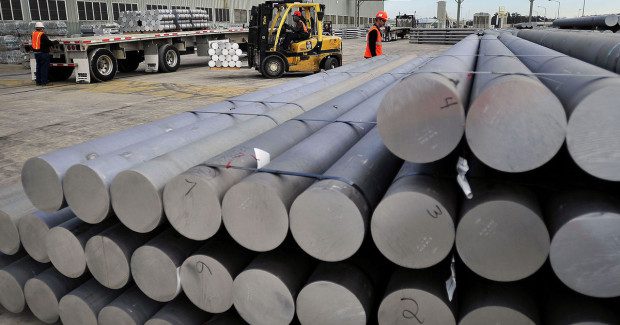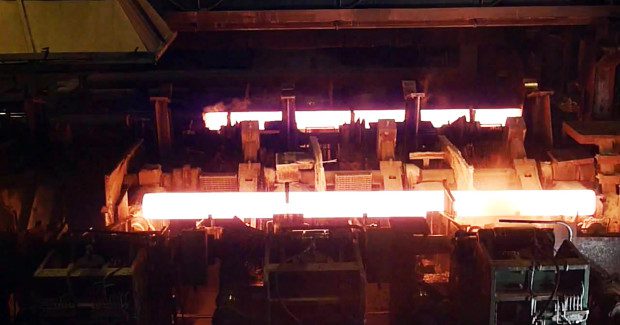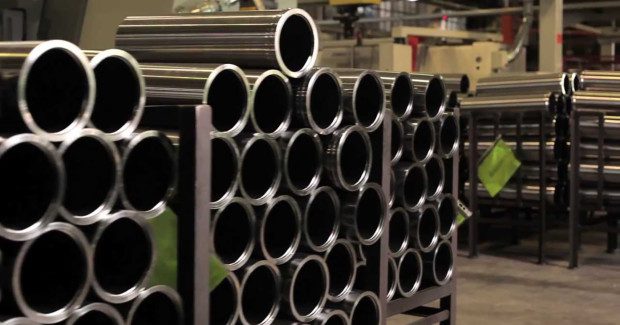Putting Your Head in the Sand is a Bad Idea
The Department of Justice and Securities and Exchange Commission are ramping up enforcement of the Foreign Corrupt Practices Act to the point that it is imperative that officers, directors and relevant employees of every manufacturer sit up, take notice, and become informed.
Posted: April 15, 2015
Up until about ten years ago, the “Foreign Corrupt Practices Act” was a – well – very foreign concept to a typical U.S. manufacturing salesperson or manager. Even the name of this law suggests that it is some sort of esoteric legislation that could have nothing to do with day to day operations of a U.S. company. However, both the Department of Justice (DOJ) and Securities and Exchange Commission (SEC) have intensely ramped up enforcement of this once-sleepy law over the past several years, to the point where it is imperative that officers, directors and relevant employees of every manufacturing company sit up, take notice, and become informed. I’d like to briefly outline the provisions of the Foreign Corrupt Practices Act (FCPA), give examples of how it has been enforced, and provide some tips for compliance.
The FCPA was enacted in 1977 in response to a report by the Watergate Special Prosecutor indicating that major U.S. corporations were engaging in systemic bribing of foreign government officials. In short, the FCPA prohibits bribing foreign officials to obtain business, or not recording these bribes truthfully in financial statements. There are two aspects – the “anti-bribery” provisions and the “accounting” provisions. The anti-bribery provisions generally prohibit any direct or indirect offer, payment, or promise to pay money or anything of value corruptly to any foreign official, foreign political party or candidate for public office with the purpose of influencing any act or decision in order to obtain or retain business. The anti-bribery provisions reach to issuers of U.S. securities (whether U.S. or foreign) and “domestic concerns” (a broad term that includes companies resident or organized in the U.S. and U.S. citizens or residents), anywhere they act in the world (and the directors, officers, employees, agents and stockholders of the foregoing who violate the FCPA).
The FCPA’s accounting provisions apply to issuers (whether U.S. or foreign) of securities registered on the U.S. stock exchanges. The accounting provisions of the FCPA require subject companies to make and keep books, records and accounts which accurately and fairly reflect the transactions and dispositions of the assets of the company. I will address primarily the anti-bribery provisions of the FCPA.
Violations of the FCPA are enforced only by the SEC and the DOJ. Private plaintiffs or other state or federal agencies cannot sue under the FCPA. Historically, the DOJ focused on compliance with the anti-bribery provisions and the SEC prosecuted violations of the accounting provisions, but in recent years the lines are less clear. Both the DOJ and SEC bring civil enforcement actions, but only the DOJ has authority to bring criminal prosecutions. The FBI works with the SEC and DOJ – in January 2015, the FBI announced that it will triple the number of agents dedicated to investigating potential FCPA violations.
Penalties for violating the FCPA can be significant and are ever-increasing. Companies may have to pay back profits obtained by making improper payments plus interest, pay substantial criminal fines or civil penalties, and/or be subject to oversight by an independent monitor. It is also possible that a company that violates the FCPA will lose business opportunities or licenses with the U.S. Government. Individuals face fines or even jail time. In recent years, countries around the world have also entered into treaties and enacted legislation aimed at eliminating bribery and other forms of corruption. As enforcement efforts increase worldwide, there has been more intergovernmental cooperation, further increasing the likelihood that FCPA violations will be detected.
Manufacturing companies have had their share of trouble under the FCPA. Siemens AG (Munich, Germany) paid the largest FCPA penalty to date, in the amount of $800 million to the DOJ and SEC, in 2008 (together with penalties imposed in Germany, Siemens paid a total of $1.6 billion). Siemens’ settlement with the DOJ and SEC involved at least 4,200 payments totaling approximately $1.4 billion over six years made to foreign officials in numerous countries. These payments spanned Siemens’ business groups to include transactions as varied as an infrastructure project in Argentina, telecommunications projects in Bangladesh and Nigeria, construction of power plants in Israel, installation of electricity lines in China, participation in the U.N. “oil for food” programs in Iraq, and the sale of medical devices in Russia and Vietnam, among others.
In 2011, the SEC and DOJ charged seven former Siemens executives with violating the FCPA in a decades-long bribery scheme to retain a $1 billion government contract to produce national identity cards for Argentine citizens. Alstom SA agreed, at the end of 2014, to pay $772 million for FCPA violations, including the largest criminal fine ever assessed for an FCPA violation (and second only to Siemens overall). Alstom was accused of paying approximately $75 million in bribes to government officials, between at least 2001 to 2011, to win $4 billion in power, grid and transportation projects in Indonesia, Egypt, Saudi Arabia and the Bahamas.
In January 2014, the SEC and DOJ announced cases against Alcoa Inc. (New York, NY), charging the global aluminum producer of violating the FCPA. Alcoa was charged with paying bribes to Bahraini officials to influence contract negotiations between a subsidiary of Alcoa and a major government-operated aluminum plant called Alba. It was alleged that Alcoa’s subsidiary used a London-based consultant with connections to the Bahrain royal family to negotiate with the government officials and funnel the illicit payments to retain Alcoa’s business. Money used to pay the bribes allegedly came from the commissions that Alcoa’s subsidiary paid to the consultant as well as the consultant’s price markups from the purchase price of the product from Alcoa to the sale price to Alba. Alcoa paid a total of $384 million to settle these matters.
Like in the Alcoa example, consultants, agents or distributors are involved in many FCPA violations. And it makes no difference if the company had direct control of the consultant or distributor or not. In particular, nearly all of the matters resolved in the second half of 2014 involved, at least in part, payments made through third party intermediaries. The government has taken the position that companies should be aware of, and responsible for, the conduct of those entities and persons distributing or selling the company’s products abroad. And the payment does not have to be direct to trigger the FCPA – it is a violation whether it is direct, or whether it is to someone who is not by definition a “foreign official” who passes the payment to a “foreign official.” A classic example of this situation is a payment to a private consultant, who in turn bribes the foreign official (as with the allegations against Alcoa).
For another example, in 2004, the government charged that InVision Technologies, Inc. (Newark, CA), a company that manufactures explosive detection machines used in airports, was aware of a high probability that its foreign sales agents and distributors made or offered improper payments to foreign officials in Thailand, China and the Philippines in order to acquire and retain business. The government noted that InVision paid compensation to the intermediaries without conducting due diligence, and claimed that the company’s internal controls were insufficient to detect the payments. This matter was settled for $1.1 million paid to the SEC and $800,000 to the DOJ.

















